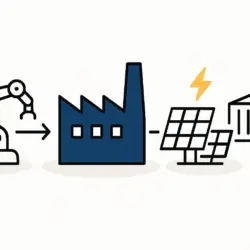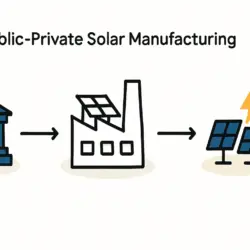The Federal Polytechnic Ilaro has unveiled an innovative solar tricycle that runs on both solar power and electronic charging, offering an eco-friendly transportation option. This upgraded five-passenger model showcases the potential of polytechnic education to drive technological innovation in Nigeria.
A Step Toward Technological Growth
Marking a significant step in technological advancement, the Federal Polytechnic Ilaro in Ogun State has unveiled a newly fabricated solar-powered tricycle. The innovation was presented during the second anniversary of Dr. Mukail Akinde’s appointment as Rector of the institution.
Running on both electronic charging and solar power, the tricycle is an environmentally friendly mode of transportation. A major upgrade from a previous single-passenger version, this latest model is designed to accommodate five passengers.
The Need for Revitalisation of Ajaokuta Steel Company
During the event, Dr. Akinde passionately called for the revitalisation of the Ajaokuta Steel Company. He stressed that its resuscitation is crucial for Nigeria’s manufacturing sector and technical development.
He noted that industries like the Ajaokuta Steel Company play a central role in providing materials and equipment needed for various manufacturing processes, including the production of components for innovations like the solar tricycle.
Dr. Akinde emphasized the importance of a working foundry where iron and steel can be cut to precision. He explained that the lack of such a facility was a major challenge in developing the solar tricycle, forcing the polytechnic to send its designs abroad for the required cuts. A functional Ajaokuta Steel, he argued, would eliminate this dependence on foreign countries and enable more local production.
The Importance of Polytechnic Education
Dr. Akinde’s speech also underscored the vital role of polytechnic education in Nigeria’s technological advancement. He highlighted that polytechnics are designed to produce the technical manpower essential for national development.
However, he noted, inadequate funding has limited their potential and led to an over-reliance on goods that could be produced locally. He urged the government to prioritize funding for polytechnics, arguing that many items currently imported into Nigeria can be manufactured within the country.
By investing in technical education, Nigeria can reduce its dependence on foreign goods and advance its industrial capabilities. Dr. Akinde cited countries like China, Singapore, and Malaysia, which have advanced technologically by focusing on technical education.
He noted that China has even converted many of its universities into polytechnics, demonstrating the global importance of technical skills, and implored Nigeria to follow this example to drive its own technological and economic growth.
The Impact of the Solar Tricycle Innovation
The solar-powered tricycle developed by the Polytechnic is a clear example of what can be achieved with proper support for technical education. The tricycle’s ability to run on solar energy is particularly important in a country like Nigeria, where access to reliable electricity is often limited.
The Polytechnic’s solar tricycle has already drawn widespread attention. The President of the Nigerian Institute of Electrical and Electronic Engineers, Engr Felix Olu, commended the institution’s commitment to driving homegrown technological innovation.
Olu urged the Polytechnic to seek collaborations for commercial production, which could transform the solar tricycle into a widely distributed product across Nigeria and beyond. This innovation offers a sustainable solution to transportation challenges, especially in rural areas where fuel may be scarce or expensive.
The unveiling of the solar-powered tricycle at Federal Polytechnic Ilaro marks a major milestone in Nigeria’s journey toward technological independence. As the country grapples with import dependence and industrial stagnation, innovations like this offer a glimpse of a future where homegrown technology drives the nation forward.



